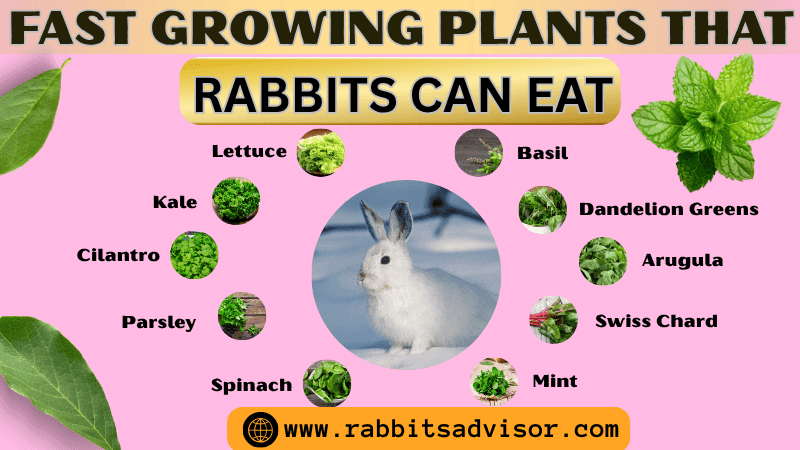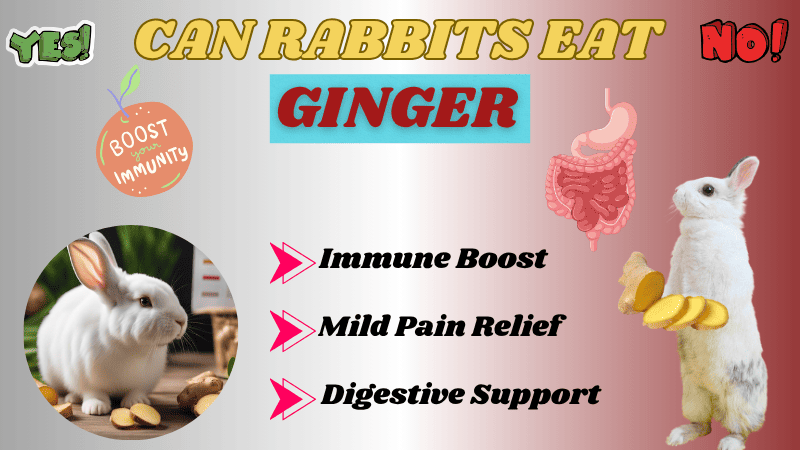Arugula is also known as ‘Rocket or Roquette’ in USA and other European countries. Arugula is a delicious salad green; you can enjoy it. It is using for sandwiches, and various culinary dishes as a flavorful and nutritious ingredient. Now, it is making crucity about whether it is a best option for feeding with your loving pet rabbit. As simple as; Can Rabbits Eat Arugula? If yes! Then how much can they eat and how often can they consume it?
If you haven’t enough time, here we will give you instant answer of your query is ‘Yes’! Your bunnies can eat arugula veggies; as well as it is healthy food for them.
Please, don’t move from here! There are some essential guidelines regarding how much arugula is sufficient for your bunnies. If, you are feeding it daily to your pet bunnies then stop it quickly; because it can be harmful for them. So, keep reading this fruitful content, here we will share all possible stuffs about arugula for your pet bunnies.
Can I Give Arugula to Rabbits?
Yes! You can give arugula to rabbits as it is a safe and nutritious addition to their diet. Arugula is a leafy green vegetable along with a peppery taste. It is rich in essential vitamins and minerals like vitamin A, vitamin C, calcium, and fiber.

While rabbits can eat arugula every day, it should be fed in moderation alongside a variety of other leafy greens and vegetables to ensure a balanced diet. Introducing arugula gradually and monitoring your rabbit’s response is recommending to avoid any digestive issues.
Arugula Nutrition Facts and stats
Arugula is a nutrient-dense leafy green that offers various health benefits. This leafy green is also getting to link with reducing cancer risk due to its glucosinolates content. Here are some typical nutrition facts for arugula per 100 grams:
Also Read: Can Rabbits Eat Spinach? Complete Guidelines with FAQs
| Nutrient | Amount per 100g |
|---|---|
| Folate | 16% DV |
| Calories | 25 |
| Protein | 2.6g |
| Fat | 0.7g |
| Carbohydrates | 3.7g |
| Fiber | 1.6g |
| Vitamin A | 47% DV |
| Vitamin C | 25% DV |
| Vitamin K | 90% DV |
| Folate | 16% DV |
| Calcium | 16% DV |
| Iron | 8% DV |
| Potassium | 10% DV |
| Magnesium | 6% DV |
Rabbit’s Health Benefits with Concerns Arugula
Arugula can be a healthy addition to a rabbit’s diet when offered in moderation alongside other suitable vegetables. Here, we will guide you few potential health benefits of feeding arugula to rabbits, including:
Nutritional Content: Arugula contains some essential vitamins and minerals like as vitamin A, vitamin K, vitamin C , calcium, and potassium. These nutrients help to complete health and vitality in rabbits.
Hydration: Arugula has a high water content, which can contribute to the hydration of rabbits, especially when fresh greens are provided.
Digestive Health: The fiber content in arugula can support healthy digestion in rabbits. Fiber is most critical for maintaining perfect gut motility and preventing problems such as gastrointestinal stasis.
Dental Health: Chewing on fibrous vegetables like arugula can help wear down a rabbit’s constantly growing teeth, promoting good dental health and preventing dental problems.
Variety in Diet: Offering a variety of vegetables, including arugula, helps provide rabbits with a diverse range of nutrients, contributing to overall balanced nutrition.
Negative Concerns of Arugula for Rabbits
Arugula can offer some nutritional benefits to rabbits. But, there are also potential negative concerns associating with its consumption:
High Oxalate Content: Arugula contains oxalic acid that can bind to calcium. It potentially contributes to the formation of bladder stones or calcium oxalate crystals in rabbits, especially if fed in large quantities.
Digestive Issues: Some rabbits may have sensitive digestive systems. So, if bunnies feed arugula too quickly or in excessive amounts that can lead to gastrointestinal upset, including diarrhea, gas, or bloating.
Pesticide Residues: Commercially grown arugula may contain pesticide residues, which can be harmful to rabbits if ingested. It’s essential to thoroughly wash any greens before offering them to your rabbit.
Allergic Reactions: While relatively rare, some rabbits may be allergic to arugula or other leafy greens, leading to adverse reactions such as itching, swelling, or respiratory issues. If you notice any signs of an allergic reaction after introducing arugula, discontinue feeding it and consult with a veterinarian.
Nutrient Imbalance: Feeding too much arugula without providing a balanced diet that includes hay, pellets, and other vegetables that can lead to nutrient imbalances, including deficiencies or excesses of certain vitamins and minerals.
Interference with Appetite: Offering too many watery vegetables like arugula may lead to a decrease in hay consumption, which is essential for maintaining dental health and proper gut function in rabbits. Hay should be the primary component of a rabbit’s diet, with vegetables like arugula offered as occasional treats.
Temperature Sensitivity: Arugula and other leafy greens can wilt quickly in warm temperatures, increasing the risk of bacterial growth and spoilage. Ensure that any fresh vegetables offered to rabbits are fresh and free from signs of decay.
Do Rabbits Like to Eat Arugula?
Most rabbits enjoy eating arugula due to its tasty and nutritious nature. While individual preferences may vary, arugula is generally well-received by rabbits for its flavor and texture.
It is safe for rabbits to consume in moderation, providing essential nutrients like vitamin C and fiber. Introducing arugula gradually and observing your rabbit’s response is recommending to ensure they enjoy this healthy treat.
How Often Should Rabbits Be Fed Arugula?
General guideline for feeding arugula to rabbits is to offer it as a treat rather than a staple food. Here are some recommendations:
Also Read: Can Rabbits Drink Milk? Interested Facts and FAQs
Frequency: Offer arugula or other leafy greens to your rabbit 2-3 times per week at most.
Portion Size: Limit the portion size to a small handful or about 1-2 cups of fresh arugula per feeding, depending on the size of your rabbit.
Variety: Rotate arugula with other safe vegetables such as romaine lettuce, kale, parsley, cilantro, and dandelion greens to provide a diverse range of nutrients and flavors.
Introduction: Introduce new foods like arugula gradually into your rabbit’s diet to monitor for any adverse reactions or digestive issues.
Observation: Monitor your rabbit’s health and behavior after introducing arugula. If you notice any signs of digestive upset, allergic reactions, or changes in appetite, discontinue feeding arugula and consult with a veterinarian.
Hay First: Always ensure that hay forms the majority of your rabbit’s diet (about 70-80%). Hay is most essential food to keep maintaining proper dental health, gastrointestinal function, and overall well-being in rabbits.
Alternatives to Arugula for Rabbit’s Diet
There are several alternatives to arugula that you can include in a rabbit’s diet to provide variety and nutrition. Some suitable options include:
Also Read: Can Rabbits Eat Rice? Exploring the Myths and Facts
Romaine Lettuce: Romaine lettuce is a safe and popular choice for rabbits. It’s low in oxalic acid and provides essential vitamins and minerals.
Leaf Lettuce: Varieties such as green leaf lettuce or red leaf lettuce can offer to rabbits as part of their diet.
Kale: Kale is rich in nutrients like vitamin A, vitamin C, and calcium. However, it should be fed in moderation due to its higher oxalic acid content.
Parsley: Parsley is another herb that rabbits may enjoy. It’s high in vitamin C and can offer as a treat.
Dandelion Greens: Dandelion greens are nutritious. Make sure they are free from pesticides and offered in moderation.
Endive: Endive is a leafy green vegetable that rabbits can eat. It’s low in oxalic acid and provides essential nutrients.
Bok Choy: Bok choy is a type of Chinese cabbage that rabbits may enjoy. It’s rich in vitamins and minerals and can offer occasionally.
Collard Greens: Collard greens are a good source of calcium and other nutrients. They can be fed to rabbits in moderation.
FAQs (Frequently Asked Questions)
Can Rabbits Eat Arugula?
Yes! Rabbits can eat arugula, but it should offer in moderation as part of a varied diet.
Is Arugula Safe for Rabbits?
Yes! Arugula is generally safe for rabbits when fed in appropriate amounts. However, it should given as an occasional treat rather than a staple food.
Are There Any Risks Associated With Feeding Arugula to Rabbits?
While arugula can offer nutritional benefits, there are some risks to consider, such as its oxalic acid content, which may contribute to bladder stones in rabbits if fed excessively.
How Much Arugula Can I Feed My Rabbit?
You should offer arugula to rabbits in moderation, typically 2-3 times per week at most. Limit the portion size to a small handful or about 1-2 cups per feeding, depending on the size of your rabbit.
How Should I Introduce Arugula into My Rabbit’s Diet?
Introduce new foods like arugula gradually into your rabbit’s diet to monitor for any adverse reactions or digestive issues. Start with a small amount and observe your rabbit’s response before increasing the quantity.
Can All Rabbits Eat Arugula?
While arugula is generally safe for most rabbits, individual preferences and sensitivities may vary. Monitor your rabbit’s health and behavior after introducing arugula to ensure it agrees with them.
Should Arugula Be Washed before Feeding it to Rabbits?
Yes! It’s essential to thoroughly wash arugula (and any other vegetables) before offering them to rabbits to remove any pesticide residues or contaminants that could be harmful to their health.
What are Some Alternatives to Arugula in a Rabbit’s Diet?
There are several alternatives to arugula that you can include in a rabbit’s diet, such as romaine lettuce, kale, cilantro, parsley, dandelion greens, and leaf lettuce.
What Should I do If Rabbit Shows signs of Digestive Upset After Eating Arugula?
If you notice any signs of digestive upset or adverse reactions after feeding arugula to your rabbit, discontinue feeding it and consult with a veterinarian experienced in rabbit care for guidance.
Can Rabbits Eat Arugula Flowers and Leaves?
Yes! Rabbits can eat both arugula leaves and flowers. However, it’s essential to offer them in moderation as part of a balanced diet. Monitor your rabbit for any adverse reactions or digestive issues after introducing arugula leaves and flowers.
Verdicts Up
Now, we can hope that you have been fully educated about ‘whether rabbit can eat arugula or not’. This is the perfect food for your bunnies. But, however all arugula pieces should be washed and purchase organically, if it is possible.
Also Read: Can Rabbits Eat Asparagus? Safe or Harmful
If this article is valuable for you, then please share it along with your friends, family members, pet lovers or relatives over social media platforms like as Facebook, Instagram, Linked In, Twitter, and more.
If you have any experience, tips, tricks, or query regarding on this? You can drop a comment!
Have a Nice Day!!





